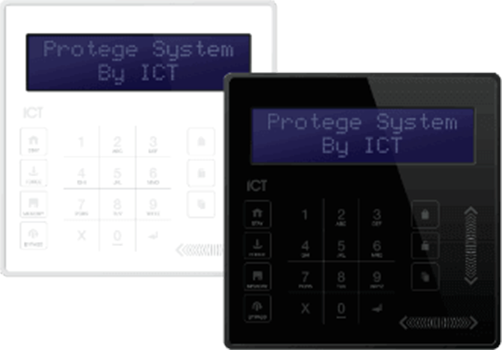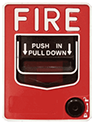Video MGMT System
 Access Control
Access Control
Voice & Data Wiring
 Burglar Alarm
Burglar Alarm
 Fire Alarm
Fire Alarm
Video MGMT System
Voice & Data Wiring
Mammoth Takeaways
Keeping security cameras clean is crucial for ensuring they function optimally. Dust, dirt, and environmental factors can obscure lenses, leading to reduced image quality and potentially compromising the security of your property. Regular maintenance not only enhances image clarity but also extends the lifespan of your cameras, making it a necessary practice for any effective surveillance system.
But here’s something you should know:
As the global security camera market is projected to reach $76 billion by 2025, up from $45 billion in 2020, the importance of these devices in our daily security measures becomes even more pronounced.
This statistic not only highlights the widespread adoption of security cameras but also emphasizes the need for proper maintenance to ensure they perform their critical functions effectively and to protect your investment. So, let's dive into the essentials of security camera cleaning.
Security cameras, integral to modern surveillance systems, vary not just in design but also in the care they require.
Each type has unique vulnerabilities - dome cameras can accumulate dust inside the protective dome, bullet cameras may experience lens exposure to the elements, and wireless/IP cameras could suffer from connectivity issues if their antennas are mishandled. Understanding these nuances is crucial for maintaining the clarity of the footage and the longevity of the device.
The right tools can make a significant difference in cleaning your security cameras effectively while avoiding damage.
When selecting cleaning solutions, opt for those specifically designed for electronics, which evaporate quickly and leave no residue. Having these tools at hand before you start ensures a smooth and safe cleaning process.
Safety is paramount when maintaining electronic devices, including security cameras. Turning off the power to your cameras is the first and most crucial step to prevent any electrical hazards or short-circuiting during cleaning. For cameras connected to the main power supply, ensure they are completely powered down and unplugged. If your cameras are hardwired or difficult to power down, take extra caution not to let liquids seep into any electrical components.
Understanding the dos and don'ts is also essential.
These precautions help maintain your camera's functionality and safety during the cleaning process.
1. Power Off: Begin by turning off your security camera to prevent electrical hazards and damage.
2. Dusting: Use a can of compressed air to gently blow away any loose dust from the camera body and lens. This step prevents scratching during the cleaning process.
3. Lens Cleaning: Apply a small amount of lens cleaning solution to a microfiber cloth (never directly onto the lens) and gently wipe the lens in a circular motion to avoid streaking. For stubborn dirt, a lens cleaning pen can be effective.
4. Wiping Down the Camera: With a slightly dampened microfiber cloth, clean the camera body. For outdoor cameras, consider a mild soap solution for removing grime.
5. Drying: Ensure the camera is completely dry before reconnecting the power. A dry microfiber cloth can be used to remove any moisture.
6. Reconnecting Power: Once the camera is dry and reassembled, if needed, reconnect the power and check the functionality to ensure everything is in working order.

Set a schedule for routine maintenance checks. That will help your cameras last longer.
The clarity of your security camera's images largely depends on the cleanliness of its lens. Here are detailed techniques for effective lens cleaning:
To prevent malfunctions and ensure longevity, the camera's housing and cables need regular maintenance:
If you encounter issues after cleaning, such as blurry images or connectivity problems, consider the following steps:
While regular maintenance can be done at home, certain situations call for professional assistance:
Knowing when to call in experts can save you from further damaging your security system and ensure that your cameras continue to operate effectively.
As we've explored the ins and outs of security camera maintenance, it's clear that keeping your system in top shape is crucial for the safety and security of your business.
But let's face it: maintaining an advanced security system can be a daunting task without the right expertise and workmanship.
That's where Mammoth Security comes in.
We're not just any security company; we're Connecticut's one-stop shop for all your commercial-grade security system and professional installation needs. From surveillance cameras and access control systems to fire safety, intrusion detection, and structured cabling for reliable telecommunications, we've got you covered.
Reach out to us by calling or clicking on the contact button and filling out the form. We’re offering 100% free site surveys and security assessments from friendly experts on our team.
NOT COMPLETELY SURE?
860-748-4292Regular security camera maintenance is crucial for ensuring your business's security system remains a reliable tool for protecting your assets, employees, and premises around the clock. Maintenance keeps your cameras operating at their best, capturing clear images and avoiding system failures when you need them most.
Security cameras should be serviced regularly, with maintenance checks scheduled monthly, quarterly, or as fits your camera needs. Outdoor cameras generally require monthly cleanings, while indoor cameras can go from three to six months without being cleaned so long as they aren’t in areas with smoke, dust, or chemicals.
Cleaning the lens is key to maintaining security camera effectiveness because a dirty lens can significantly reduce image quality, making it difficult to identify important details.
If damage is spotted on a security camera, it's crucial to address the issues promptly. Repairing or replacing damaged components like cracked casings, exposed wires, or water damage immediately can prevent camera failure and ensure the safety of your premises.
Essential steps in maintaining a security camera system include performing regular check-ups to confirm cameras are powered and recording, cleaning lenses to ensure clear images, updating software and firmware, addressing damages immediately, and monitoring environmental factors that could affect the cameras.
A digital log is important in security camera maintenance because it streamlines the maintenance process, ensuring no detail is overlooked. Recording routine checks, cleanings, updates, and repairs provides a clear history of upkeep, helps spot recurring issues, and can be invaluable for insurance or legal purposes.
Professional help should be sought for security camera issues when dealing with complex problems like software glitches, hardware failures, or updates that could disrupt the system. Experts have the necessary tools and knowledge to fix problems without risking further damage.
Environmental factors can significantly affect security camera performance. For outdoor cameras, weatherproofing is essential to withstand rain, snow, or extreme temperatures. Indoor cameras need protection from potential hazards like moisture, dust, or chemical vapors, depending on the business environment.
Staff training plays a crucial role in security camera maintenance by ensuring that your team knows the basics of camera upkeep and the signs of potential issues. Educating staff on what to look out for and how to report problems increases the number of eyes watching out for the system's well-being, enhancing overall security.